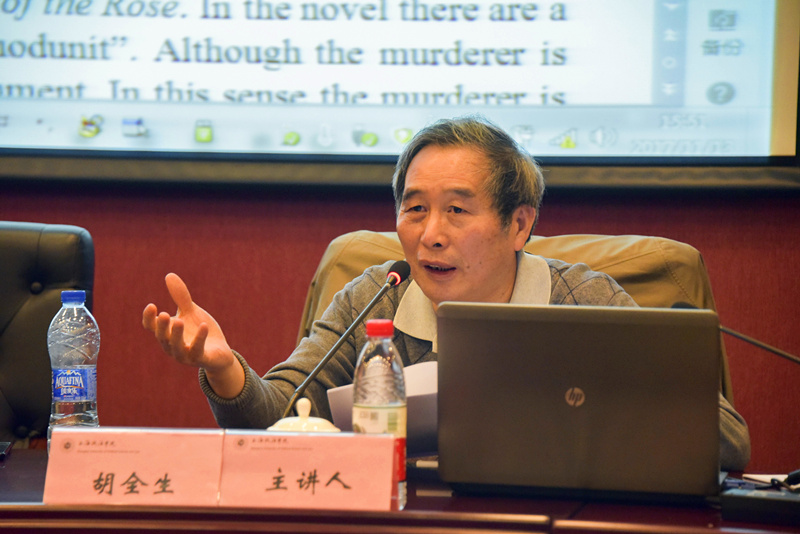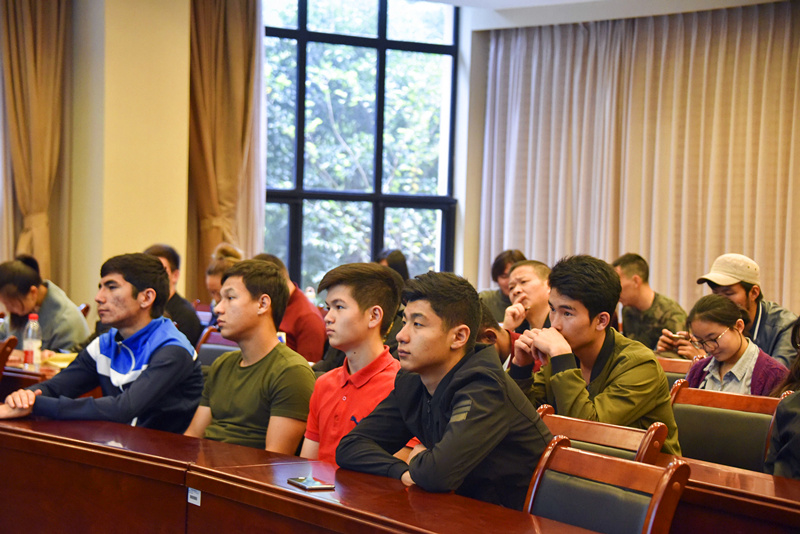On the afternoon of November 13, Professor Hu Quansheng, a renowned researcher of foreign languages and literature and doctoral supervisor at Shanghai Jiaotong University, was invited to speak at the General Assembly of the National Academy of Sciences. The lecture, entitled Aesthetic Principles of Postmodernist Literature, was delivered in Conference Room 107 of the Research Center. The lecture was presided over by Prof. Ouyang Meihe, Dean of the School of International Communication and Exchange, Secretary of the General Party Branch, Director of the International Students Office, and students and faculty of the SICE attended this lecture.

Postmodernist literature has been a hot topic in the study of foreign literature in recent years. Prof. Hu focuses on the double coding of postmodernist literature, i.e. experimentation and popularization, and develops the aesthetic principles of postmodernism. Discourse. He paraphrases and elaborates on the relationship between postmodernism and modernism, both a certain inheritance and a certain transcendence. He also lists the various new forms of postmodernist literary experimentation and innovation, including metafiction, rewriting and parody, collage, fragmentation, and the The method of elimination as well as fork structure and shadow characters. Finally, Professor Hu suggests that the popular nature of postmodernist literature is reflected in its intertextual strategy of borrowing or mixing popular genres, such as Science fiction and gothic fiction, detective fiction and western fiction, historical fiction and campus fiction, and so on; such a cross-genre strategy is exactly It reflects the uncertainty and diversity characteristic of postmodernist literature. Through careful textual interpretation and clear theoretical comprehension, Professor Hu explains in depth the aesthetic principles of postmodernist literature. It is not simply anything goes, but a combination of traditional popular coding and elite coding that transcends traditional literary categories, both The elite and the commonplace coexist, but the new and the old coexist together. The students listened attentively and discussed actively, and the whole lecture had a warm atmosphere.

The Silk Road Master Lecture was the beginning of our intimate contact with the famous masters and our deeper understanding of academic culture. Ideas and perspectives have also raised our understanding of literary studies and Chinese and foreign aesthetics to a new level. In the future, the School of International Communication and Exchange will hold a number of academic lectures to expand the international vision of teachers and students and cultivate their academic cultivation. (Photo by Yuying Yang Shiyingshu)
School of International Communication and Exchange
(International Students Office)
November 13, 2017



